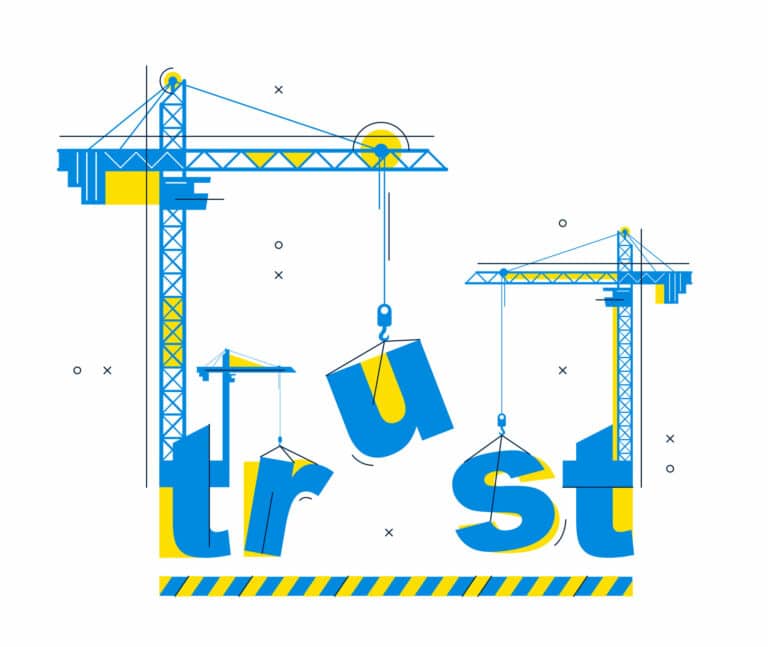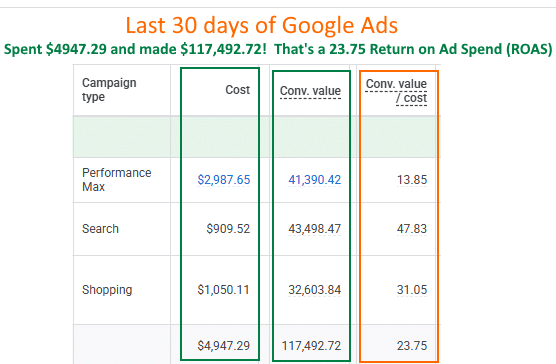EDITOR’S NOTE: Learning how to build and maintain your audience’s trust is essential in order to make a sale and keep repeat customers over time. But consumer trust hasn’t been very high lately, as many are worried about fake news and click bait being used against them. Nick Usborne suggests 5 ways to gain the trust of your audience instead that is effective. What it boils down to the most is language. People can see through your sleazy sales pitch, and they want nothing to do with it. Instead, speak to your audience in a more friendly, relatable way. Ditch the fancy jargon and big words and opt for conversational tones and humanize stories. Your audience will feel more connected to you, and thus trust you more. If you have any questions about trust building, reach out to us at Prebuilt Sites orThe BBS Agency. We’d love to help you out!
Edelman is a communications agency, well known for what it calls its “trust barometer”.
They track the public’s levels of trust when it comes to business, the media, institutions and government.
As you can imagine, the results over the last few years don’t paint a pretty picture. Trust levels overall are down.
Even while people are looking to inform themselves with the latest news, Edelman reports that 73 percent are worried about fake news being used as a weapon.
And we need look no further than companies like VW and Facebook to understand why our trust in companies and large corporations is being eroded.
So… what is one to do?
Well, there are a few simple steps a company can take to win back or maintain the trust of its audience.
First, of course, you need to be trustworthy. If you’re not, then everything else is a lie.
But beyond that, there are important changes you can and should make to the language you use when communicating with the public.
1. Dump the heavy-handed sales language.
Nothing erodes trust faster than overly-aggressive sales language.
Think of your least-favorite experience at a car dealership. Or that evening phone call from a salesperson pitching their latest and greatest mobile network package.
We instinctively shy away from aggressive sales people. They trigger our defenses. They make us want to step back.
And, of course, pushy sales tactics simply reinforce our belief that companies cannot be trusted, because they prioritizes their own profits over everything else.
If you want to built trust, dial back on the adversarial approach to marketing communications.
2. Stop using corporate gobbledygook.
While aggressive marketing languages pushes people away, corporate gobbledygook simply makes your business communications opaque to outsiders.
You know the kind of language I mean.
Lots of jargon. Long, compound sentences. The kind of text you read and then suddenly realise you have absolutely no idea what they’re trying to say.
Sometimes this is deliberate. It’s obfuscation. They don’t want you to understand.
Other times, companies just don’t know any better. They don’t know how to communicate clearly, and don’t bother to hire writers who can.
Either way, too much gobbledygook will erode people’s trust in your business. They’ll think you have something to hide.
And if you have something to hide, why would people trust you or buy from you?
3. Communicate in everyday, conversational language.
Far better to write in everyday language.
Like this.
I write in a way that is very close to the way I speak.
Simple ideas. Short words and sentences.
Actually, you’re better off reading my writing than listening to me speak. When I speak I tend to ramble and repeat myself.
When I sit down to write, I clean things up a lot. I write a few drafts. It still feels conversational, but a lot of work goes into making it sound that way.
And when I get it right, and my writing feels natural, I don’t come over sounding like an untrustworthy company, institution or media mogul.
Everyday, conversational language is disarming and builds trust.
4. Tell more stories about your customers and employees.
On the subject of being disarming, nothing disarms more than a good story.
Not a fabricated, “perfect” story.
But a story with real and fallible humans in it.
This could be the story of an employee in a small retail business who made a mistake, and then made up for it a hundred times over… and how she did it.
Or the story could take the form of a business case study.
But again, make that case study real, and human. Share some mistakes you made along the way.
Nobody trusts perfection.
But absolutely everyone enjoys a good story that’s being told well.
Bottom line… people trust other people more than they trust companies and organizations.
Edelman has been updating their trust barometer for years now.
And the trends are not encouraging.
That’s why business everywhere has to turn a new leaf with their communications and reach out to their audiences in a more open, transparent and human way.
If you want to some help with that, I have a couple of courses that fit the bill.
One course on Conversational Copywriting…
And one on Selling With Stories…
Originally posted on Nick Usborne.




